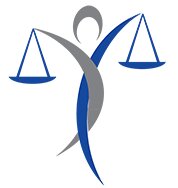Best Accidents & Injuries Lawyers in Trinidad and Tobago
Share your needs with us, get contacted by law firms.
Free. Takes 2 min.
Or refine your search by selecting a city:
List of the best lawyers in Trinidad and Tobago
About Accidents & Injuries Law in Trinidad and Tobago
In Trinidad and Tobago, the law surrounding accidents and injuries primarily concerns the legal rights and responsibilities of individuals involved in accidents, frequently addressing issues of negligence and liability. Such incidents may include road traffic accidents, workplace injuries, and accidents occurring in public spaces. The legal framework aims to ensure fair compensation for injury victims while establishing standards for safety and responsibility. This area of law combines elements of tort law with specific legislative provisions to address various accident and injury scenarios.
Why You May Need a Lawyer
Several common situations may necessitate seeking legal help for accidents and injuries in Trinidad and Tobago. These include:
- Car Accidents: After being involved in a road traffic accident, determining fault and claiming insurance can be complex.
- Workplace Injuries: Employees injured at work may need assistance claiming worker’s compensation or pursuing employer negligence cases.
- Public Liability Injuries: Injuries occurring in public places due to unsafe conditions can lead to complex liability claims.
- Medical Negligence: Cases where medical professionals fail to provide adequate care, resulting in injury, often require specialized legal expertise.
Local Laws Overview
The legal landscape for accidents and injuries in Trinidad and Tobago involves several key statutes and principles:
- Tort Law: The law of torts provides the basis for negligence claims, where one’s failure to exercise reasonable care results in injury to another.
- Motor Vehicles and Road Traffic Act: This statute governs road safety, vehicle operation, and the legal requirements for motor vehicle insurance.
- Occupational Safety and Health Act: This act outlines employer responsibilities to ensure workplace safety and provides a framework for addressing workplace injuries.
- Compensation Structures: Laws regarding the calculation and awarding of damages, including medical expenses, lost earnings, and non-economic damages.
Frequently Asked Questions
What should I do immediately after an accident?
Ensure safety, call emergency services if needed, exchange contact information with the other party involved, and document the scene. Report the incident to the police if applicable.
How is negligence determined in an accident case?
Negligence is determined by proving that a duty of care was owed, that it was breached by the other party, and that the breach caused your injury.
Can I claim for emotional distress caused by an accident?
Yes, you can claim compensation for emotional or psychological distress in addition to physical injuries, provided you can demonstrate its impact on your life.
Is there a time limit for filing an injury claim?
Yes, typically there is a limitation period, and it is essential to file your claim within this time frame or you may lose the right to seek compensation.
What if I was partially at fault for the accident?
Trinidad and Tobago’s legal system allows for contributory negligence, meaning compensation may still be available, but it could be reduced in proportion to your degree of fault.
How can I prove my injury and related expenses?
Maintain thorough records including medical reports, receipts for expenses, and documentation of any lost wages due to your injury.
Who pays for my medical expenses in a car accident?
Typically, the at-fault driver’s insurance should cover medical expenses, but you may need to engage legal assistance to ensure fair compensation.
Do I need to go to court for an injury claim?
Not necessarily. Many cases are resolved through settlements outside of court, but legal advice is crucial to negotiate effectively.
What is public liability insurance?
This type of insurance covers losses to third parties arising from accidents on the insured’s premises due to negligence.
How do I choose a lawyer for an accident or injury case?
Look for a lawyer with expertise in personal injury law, experience in negotiating settlements, and a successful track record in litigating these types of cases.
Additional Resources
For further assistance, consider contacting the following resources:
- Legal Aid and Advisory Authority: Provides free or subsidized legal services to those who qualify.
- The Law Association of Trinidad and Tobago: Helps locate qualified lawyers and provides valuable legal information.
- Ministry of Works and Transport: Offers insights into road safety regulations and related legal requirements.
- Occupational Safety and Health Agency: Provides resources about workplace safety laws and employee rights.
Next Steps
If you require legal assistance for an accident or injury, consider the following steps:
- Document Everything: Preserve evidence, including photos, witness accounts, and all relevant documentation needed for your case.
- Seek Legal Consultation: Contact a lawyer that specializes in accidents and injuries to review your case and guide you on potential claims.
- File Your Claims Promptly: Be mindful of limitation periods and ensure you initiate legal actions in a timely manner to protect your rights.
- Review Insurance Policies: Understand your and the other party's insurance policies to know what claims can be made.
- Maintain Medical Records: Continue any required medical treatment and keep all medical records updated to substantiate your claims.
Lawzana helps you find the best lawyers and law firms in Trinidad and Tobago through a curated and pre-screened list of qualified legal professionals. Our platform offers rankings and detailed profiles of attorneys and law firms, allowing you to compare based on practice areas, including Accidents & Injuries, experience, and client feedback.
Each profile includes a description of the firm's areas of practice, client reviews, team members and partners, year of establishment, spoken languages, office locations, contact information, social media presence, and any published articles or resources. Most firms on our platform speak English and are experienced in both local and international legal matters.
Get a quote from top-rated law firms in Trinidad and Tobago — quickly, securely, and without unnecessary hassle.
Disclaimer:
The information provided on this page is for general informational purposes only and does not constitute legal advice. While we strive to ensure the accuracy and relevance of the content, legal information may change over time, and interpretations of the law can vary. You should always consult with a qualified legal professional for advice specific to your situation.
We disclaim all liability for actions taken or not taken based on the content of this page. If you believe any information is incorrect or outdated, please contact us, and we will review and update it where appropriate.
Browse accidents & injuries law firms by service in Trinidad and Tobago
Trinidad and Tobago Attorneys in related practice areas.
Browse accidents & injuries law firms by city in Trinidad and Tobago
Refine your search by selecting a city.















